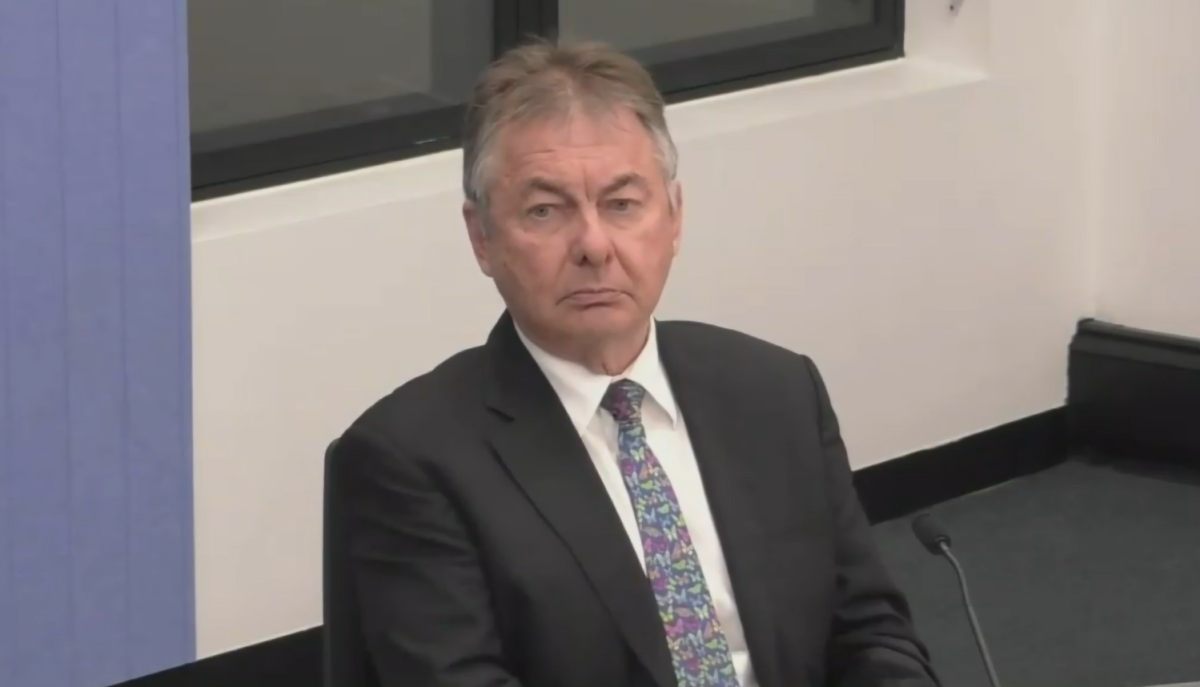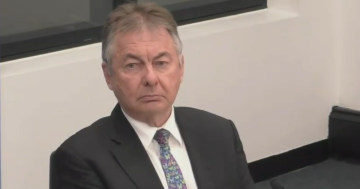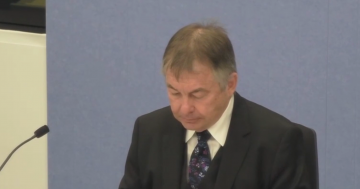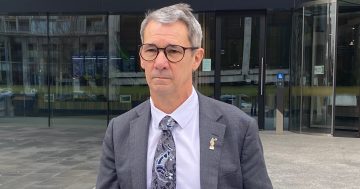
Board of Inquiry chair Walter Sofronoff KC is now being investigated by the ACT Integrity Commission. Photo: Screenshot.
Chief Minister Andrew Barr has admitted publicly that appointing Walter Sofronoff KC to lead the ACT Government’s Board of Inquiry into the Criminal Justice System, which focused on the conduct of the aborted rape trial of former Liberal Party staffer Bruce Lehmann, was a mistake.
Asked at Wednesday’s Property Council Leaders Debate whether he had ever made a decision that was clearly the wrong call, Mr Barr replied: “The time I accepted advice from the Justice and Community Safety Directorate and the Attorney-General [Shane Rattenbury] to appoint Walter Sofronoff. That was a mistake.”
Mr Barr did not elaborate, and with Mr Sofronoff the subject of an integrity Commission investigation, he is constrained in what he can say.
Mr Barr indicated later that with the benefit of hindsight, amid the obvious fallout, he regretted the appointment.
A lesson he drew from the experience was that any future Boards of Inquiry should have more than one appointment.
Mr Sofronoff had come highly regarded for his work as Commissioner for the Grantham Floods Commission of Inquiry, his review of Queensland’s parole system in 2016 and as Commissioner for the Commission of Inquiry into Forensic DNA Testing in Queensland.
But he was inquiring into contentious matters that had dominated the headlines for years and become politicised in the process.
Mr Lehrmann was accused of raping Ms Higgins in Parliament House on 23 March 2019, but the trial was aborted due to jury misconduct with no findings against Mr Lehrmann. Mr Drumgold decided against a retrial due to fears about Ms Higgins’ mental health.
It seemed everyone who became involved in the Brittany Higgins case suffered some damage.
Mr Sofronoff was no exception.
His report found Director of Public Prosecutions Shane Drumgold guilty of serious malpractice and unethical conduct, that he had withheld evidence from the defence and lied to the Chief Justice.
Mr Drumgold’s position became untenable and he resigned in August 2023.
But it was revealed that Mr Sofronoff had given his report to two media outlets before handing it to the government, and one of them, The Australian, broke the embargo.
The Australian, led by journalist/commentator Janet Albrechtsen, had taken a tough editorial line against Mr Drumgold during the trial.
Mr Drumgold challenged the findings of the Sofronoff report in the ACT Supreme Court, and Justice Stephen Kaye found that Sofronoff’s conduct, including his contact with Dr Albrechtsen, gave rise to a reasonable apprehension of bias, that one finding was legally unreasonable, and that one finding breached the rules of procedural fairness.
The court heard that Mr Sofronoff engaged in 91 telephone calls with journalists, 51 of which were with Dr Albrechtsen and 22 of which were with Hedley Thomas, also from The Australian.
It was further revealed that Dr Albrechtsen flew to Brisbane for a private lunch with Mr Sofronoff.
Their relationship was in stark contrast to his contact with other media outlets.
This week, the ACT Bar Association dropped all complaints that it had made about Mr Drumgold’s conduct during the trial.
In May, the ACT Integrity Commission confirmed that it would launch a full investigation into Mr Sofronoff for possible corruption in giving his report to journalists before handing it to Mr Barr.
Commissioner Michael Adams said in a media update at the time that he had decided to press ahead with an investigation because he suspected, on reasonable grounds, that the former Queensland judge’s actions “may constitute corrupt conduct”.


















Sweeping victory? Well perhaps the fact that the Greens hold balance of power in the upper house… View